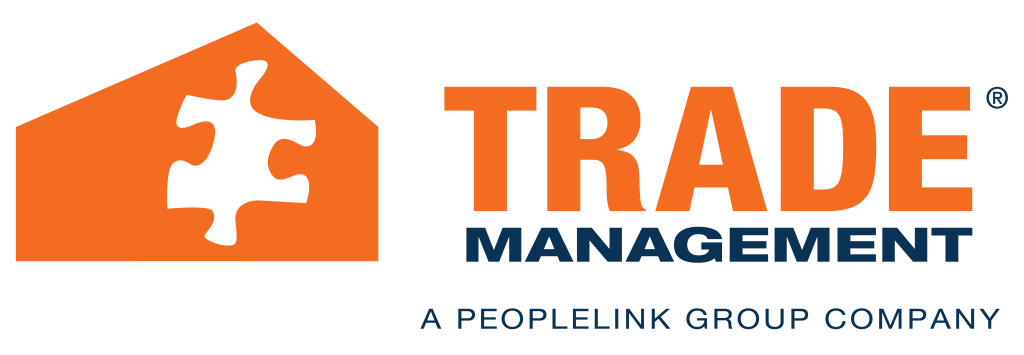
Around 13.5 percent of the U.S. population has some type of disability. There is a common misconception that people with disabilities are not capable of excelling in skilled trades. However, this could not be further from the truth. In fact, 10.2% of all women with disabilities in the workforce are working in skilled trades versus 7.4% of women without disabilities in the workforce. 38.8% of employed men with disabilities are working in skilled trades versus 34.5% of employed men without disabilities. With the right training and support, individuals with disabilities can thrive in trade school programs and go on to secure successful employment opportunities in various skilled trades. In this blog post, we will explore how training and employment in skilled trades can be a viable option for people with disabilities, and how they can pursue fulfilling careers in this industry.
The Benefits of Training in Skilled Trades
Training in skilled trades offers a myriad of benefits for individuals with disabilities. Trade schools offer a well-organized educational setting, practical training, and guidance from professionals. Not only does trade school provide a valuable skill set that can lead to lucrative employment opportunities, but it also offers a sense of empowerment and independence. By gaining hands-on experience in a trade school setting, individuals with disabilities can develop their talents and highlight their abilities to potential employers. Additionally, training in skilled trades can also provide individuals with disabilities with a powerful sense of accomplishment and pride in their work, boosting their self-esteem and confidence.
Employment Opportunities in Skilled Trades
Once individuals with disabilities have completed their training in skilled trades, they can explore a wide range of employment opportunities in various industries. From carpentry and electrical work to plumbing and welding, there are countless career paths available for individuals with disabilities in the skilled trades sector. Many employers are actively seeking to diversify their workforce and are eager to hire individuals with disabilities who have the necessary skills and qualifications to succeed in their respective fields. By tapping into these employment opportunities, individuals with disabilities can secure stable and rewarding jobs that offer competitive wages and benefits.
People with cognitive disabilities often possess unique strengths and perspectives that can be invaluable in skilled trades, including fields like electrical work. While conditions such as dyslexia and autism present challenges, they do not define a person’s ability to excel in complex technical roles. For example, electricians play a crucial role in maintaining and repairing electrical systems, and the dynamic nature of this work environment can be a perfect fit for individuals who bring diverse ways of thinking to problem-solving. Trade school programs are designed to provide hands-on training, equipping aspiring electricians with the skills they need to succeed. The need to read blueprints, perform calculations, and work carefully can be effectively managed with the right support and adaptive strategies, enabling those with cognitive differences to thrive and excel in this rewarding field.
Individuals with hearing impairments often excel in work settings that require focus and minimal distractions. Both competitive industries and traditional trades value these abilities, making them viable options for employment for roles such as metal joiners, drafters, and carpenters. Precision and skill in hand coordination are essential for this work.
Overcoming Challenges in Training and Employment
While training and employment in skilled trades can be a viable option for people with disabilities, there are certainly challenges that they may face along the way. One of the major obstacles is the lack of accessibility and accommodation in trade school programs and workplace settings. From physical barriers to discrimination and stigma, individuals with disabilities may encounter various hurdles that can hinder their progress in pursuing a career in skilled trades. However, by advocating for inclusive policies and accommodations, individuals with disabilities can overcome these challenges.
The Importance of Support and Resources
To succeed in training and employment in skilled trades, individuals with disabilities need access to the necessary support and resources. This includes mentorship programs, job coaching, assistive technology, and other accommodations that can help them thrive in their chosen field. By providing individuals with disabilities with the tools and resources they need to succeed, employers can support them in reaching their full potential and achieving their career goals in the skilled trades industry. Also, employers and educators can play a crucial role in advocating for individuals with disabilities by creating an inclusive and welcoming environment that fosters diversity and equal opportunity for all.
Promoting Diversity and Inclusion
To create a more inclusive and equitable workforce in the skilled trades industry, it is essential to promote diversity and inclusion at all levels. This includes actively recruiting individuals with disabilities, implementing inclusive policies and practices, and providing ongoing support and resources to help them succeed in their careers. By fostering a culture of diversity and inclusion, employers and educators can create a culture that values the unique talents and perspectives of all individuals, regardless of their abilities.
Empowering the Next Generation
As we look towards the future of training and employment in skilled trades for people with disabilities, it is essential to empower the next generation of talent and provide them with the opportunities and support they need to thrive in this industry. By investing in education and training programs that are accessible and inclusive, we can prepare individuals with disabilities for successful careers in skilled trades and help them reach their full potential. Through mentorship, advocacy, and ongoing support, we can create a firm foundation for the next generation to break down obstacles, shatter stereotypes, and make a positive impact in the skilled trades industry.
Training and employment in skilled trades offer many opportunities for individuals with disabilities to pursue rewarding and fulfilling careers. By providing access to inclusive training programs, employment opportunities, and support resources, we can champion individuals with disabilities to succeed in the skilled trades industry and achieve their career goals. Are you interested in a skilled trades career? Are you looking to add to your workforce? Contact Trade Management today!






